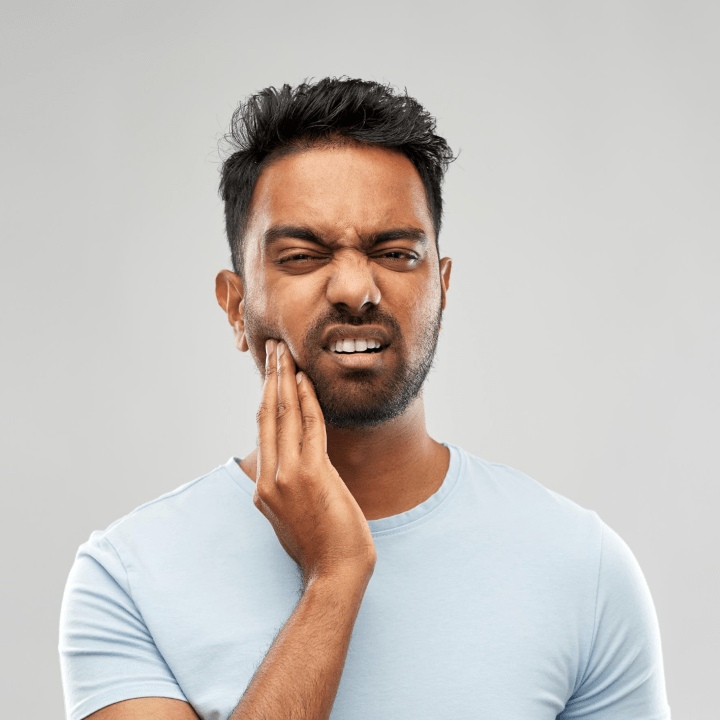“Temporomandibular disorders (TMD) are disorders of the jaw muscles, temporomandibular joints, and the nerves associated with chronic facial pain. Any problem that prevents the complex system of muscles, bones, and joints from working together in harmony may result in temporomandibular disorder.” (Johns Hopkins)
TMD’s usually occur between the ages of 30 and 50, but can have earlier onset. They may be caused by an injury (to the joint, head or neck), bruxism (clenching/grinding), arthritis or another cause.

Jaw pain can range from mild discomfort to severe pain, causing sometimes debilitating headaches.
Types of TMD
TMD are classified by The National Institute of Dental and Craniofacial Research into the following categories.
• Internal Damage of the Jaw: dislocation of the jaw, a displaced disk or damage to the bone.
• Joint Disease: Including but not limited to, rheumatoid and osteoarthritis.
• Myofascial Pain: Discomfort in the fascia (connective tissue covering the joints) and/or muscles of the jaw. This is the most common form of TMD.
Symptoms
Most of the symptoms of TMD are usually pretty obvious. If you notice any of the following or anything else not normal with your jaw joint, please be sure to tell us at your next appointment.
• Discomfort in the jaw joint
• Popping/clicking in the joint
• Jaw locking open
• Headaches
• Limited mouth movement
• Dizziness
• Clenching/Grinding
Treatment
Many times there is not a lot that can be done for TMD. Every case is unique and should be treated as such. If you’re having joint discomfort, you should discuss it with Dr. Crane. If he feels it is necessary or at your request, you may be referred to a specialist. Some basic treatments include:
• Ice & hot packs
• Rest
• Habit changes (preventing clenching)
• Oral Appliances ( to decrease the effects of bruxism)
• Relaxation/Stress management techniques
• Physical Therapy
• Injections (corticosteroids, Botox)

Finding Healthier Habits
If your case is severe, surgery may be warranted but should be a last resort.
If you suffer from TMD or start experiencing symptoms, please let one of us know at your next visit.
References
Johns Hopkins Medicine – https://www.hopkinsmedicine.org/health/conditions-and-diseases/temporomandibular-disorder-tmd
Mayo Clinic – https://www.mayoclinic.org/diseases-conditions/tmj/diagnosis-treatment/drc-20350945
Faster, better, and more comfortable care is available at Dental Care Of Sumner.
We truly live up to our name with an office packed full of advanced technology and a team who is helping move dentistry into the 21st century.
